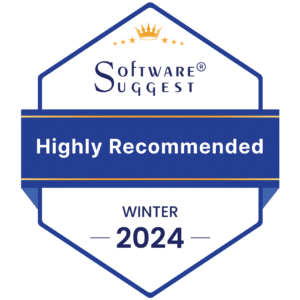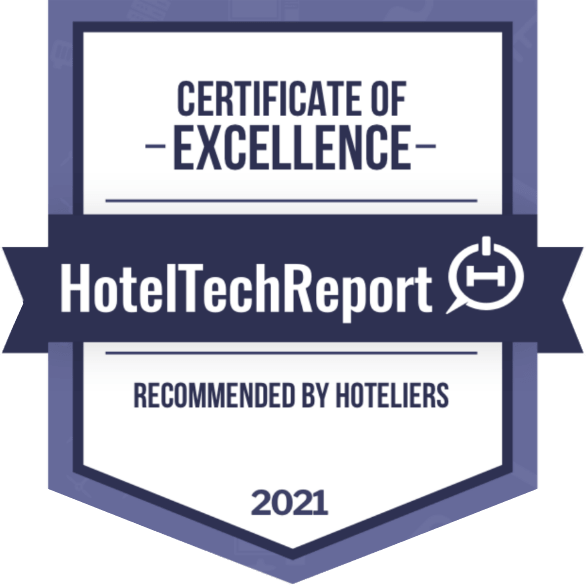Contents
Toggle“Revenue management has contributed millions to the bottom line, and it has educated our people to manage their business more effectively. When you focus on the bottom line, your company grows.”
–Bill Marriott Jr., Chairman and CEO, Marriott International
Revenue management has always been a complex field for hotel operators, and the challenges keep growing. Today, hotels face not only the usual issues with pricing and inventory but also shifting travel patterns, inflation, and economic uncertainty.
Independent properties face an even more challenging situation. They often lack a dedicated revenue manager, forcing them to compete with larger, branded hotels with these resources. This means operators often manage revenue management with other tasks. With ongoing labor shortages, multitasking has become a necessity.
Hoteliers need a strategic approach to drive growth and profitability. We’ve put together ten hotel revenue management strategies to help you boost profits, improve efficiency, and stay competitive without the extra stress.
Let’s get started!
1. Implement dynamic pricing based on real-time demand
Dynamic pricing means adjusting room rates based on demand and availability. When demand spikes, you increase rates to boost the average daily rate (ADR), and when demand drops, you lower rates to maintain occupancy. This revenue management strategy for hotels helps drive key metrics like overall revenue and occupancy.
In the past, hotel managers set fixed room rates that could remain unchanged for days or weeks. To think there are still property managers using this model is something that the ampliphi revenue management software aims to correct.
In fact, hotel RMS solutions can increase your RevPAR by up to 25%, directly impacting your bottom line. These systems use data from various sources, such as competitor rates, OTA rates, and group displacement data, to forecast demand and recommend automated rate adjustments.
Now, roomMaster PMS makes this even easier through its integration with ampliphi, which is designed specifically for independent hotels, revenue managers, and general managers. ampliphi uses AI-powered forecasting and real-time market data to recommend optimal rates, helping you stay competitive without the guesswork.
The best part is that ampliphi RMS is also integrated with your booking engine and channel manager. For example, if ampliphi determines that the optimal price for a double room next week is $50, it automatically pushes that rate to roomMaster PMS, your booking engine, and every connected channel. No manual updates needed!
For example, Jessee Pilgrim, co-owner of Pelican Bay Resort, shared, “We’ve been able to increase our page rankings with OTAs and build our online presence overall. It was so hard to manually change those rates before.”
2. Use an AI-powered revenue management system
As discussed earlier, revenue management has grown too complex to handle manually without AI support. AI helps you analyze trends, predict demand, and adjust rates in real time by automatically collecting and organizing data, managing inventory and pricing, and generating reports. This reduces guesswork, allowing you to make smarter, more informed decisions that drive profitability.
To streamline this process, you can use AI-powered RMS like ampliphi,, to easily maximize your RevPAR. With real-time price optimization, you can set the best rates based on current market demand. It also allows you to set predefined pricing limits and strategies, giving you control while automating key processes.
In addition to rate control, you should track competitor pricing, detect local demand shifts, and respond instantly with dynamic pricing updates. With ampliphi, these adjustments happen automatically in the background while still giving you full override control when needed.
You can also apply custom pricing rules to maintain guardrails around your rates. Whether you’re avoiding underpricing during high-demand events or preventing overpricing in slower seasons, the system dynamically adjusts within your set thresholds.
Similarly, event data analysis lets you capitalize on demand spikes from local events. You can automate pricing without losing oversight.
To support long-term planning, you should use demand forecasting and booking trend insights to identify high and low seasons in advance. With access to real-time dashboards and clear reporting, you get actionable data that helps you spot revenue gaps and adjust early, before performance drops.
3. Optimize distribution with a channel manager
When planning a trip, travelers explore numerous properties on various websites before making their final decision. While you want them to choose your hotel (and ideally book through your website), it’s equally important to optimize your booking channels to boost revenue and reduce acquisition costs.
Your distribution strategy plays a key role here, as it shows you how to improve hotel revenue and expand your reach to more guests. With a hotel channel manager, you can easily manage room availability and pricing across over 155 OTAs, including Expedia, Booking.com, TripAdvisor, and other distribution channels, to synchronise everything in real time.
From a single dashboard, you can maintain rate parity across OTAs, GDS, and your website. You can add as many channels as you want without increasing your workload. When your property reaches full occupancy, the system automatically closes channels.
Since everything updates instantly, you won’t have to worry about overbookings. You can also track performance data from each channel, helping you identify your top-performing partnerships.
More presence on OTAs means more booking opportunities, ultimately increasing revenue.
4. Leverage your booking engine to drive direct revenue
Travelers often turn to OTAs, but you can reduce this dependency by optimizing your website for direct bookings. When potential guests book directly, you cut down on commission fees and boost revenue.
With a booking engine, you can convert more website visitors into bookings. You can take control of your guest bookings and reduce reliance on third-party platforms. A modern, mobile-friendly design encourages direct bookings, helping you save on commission costs.
A booking engine lets you use urgency messages, best rate guarantees, and upsells to drive conversions. These tactics encourage visitors to book directly on your site sooner and at better rates.
If your booking engine has an integration with Google Analytics, you can monitor and measure the performance of your booking pages. This helps you understand how marketing campaigns perform and where you can improve your user experience.
5. Segment your guests and personalize offers
Knowing who your guests are can make a significant impact on how you sell and market to them. Hotel professionals frequently segment travelers by their reason for staying, called guest segmentation. Travelers can be segmented into various categories, including:
- Leisure travel
- Business transient travel
- Corporate negotiated travel
- Group travel
- Weddings
- Event attendees
- SMERF: Social, military, education, religious, and fraternal travel
You can learn more about each segment by analyzing travel habits and booking behavior. Study their stay patterns, room type preferences, and purchasing behavior to see what makes each segment different.
For instance, weekday visitors might have different requirements than weekend visitors, or business travelers might want more flexible booking arrangements than leisure visitors.
With this information, you can create targeted offers and personalized promotions that cater to each guest type. 49% of buyers make impulse purchases when they feel a service is personalized, so use this to your advantage!
Once you understand which segments are performing well and which need more attention, you can adjust your marketing efforts accordingly. Target those underperforming groups with tailored packages or pricing strategies. With the proper segmentation, you can create specific packages that appeal to each group and optimize your yield.
6. Forecast and adjust based on market trends
Unexpected events can disrupt even the most well-planned hotel budgets. However, effective forecasting and budgeting can help prevent financial setbacks. Revenue managers should use historical data, rate reporting, and competitive performance tracking to identify opportunities and make informed decisions.
With ampliphi’s Auto Pilot, pricings are adjusted automatically based on real-time data, so you don’t have to worry about manual updates. Here’s how the tool does that:
- Automation streamlines processes, saving you time and effort
- You have full control to adjust or override pricing strategies whenever necessary
- Customizable pricing rules ensure your rates align with your business objectives
By leveraging the machine learning models, revenue managers can predict shifts in demand before they happen. This allows for proactive adjustments to pricing, helping to capture more revenue during peak demand periods. It also helps to avoid underpricing during slower seasons.
Plus, with real-time market intelligence, you can track tracks competitor rates and booking trends, offering actionable insights to adjust your strategy instantly and stay ahead of the market.
7. Use mobile and last-minute booking strategies
Mobile bookings are on the rise, especially among Gen Z travelers. In fact, 87% of Gen Z travelers prefer a seamless booking experience, and 44% make last-minute hotel bookings. This means hotels need websites and mobile apps that offer quick, easy bookings. Complicated navigation, lengthy forms, and hidden fees can push Gen Z travelers away.
To further capitalize on this trend, hotels need to offer mobile-exclusive discounts and last-minute deals that drive urgency and encourage bookings. In addition, use mobile-optimized websites, apps, and SMS promotions to capture on-the-go travelers who may book at the last minute.
The roomMaster Guest App helps you meet this demand. It offers contactless check-in, digital keys, and simple communication throughout the stay, providing guests a smoother process and making them want to return. You can also customize the app with your brand so that your hotel feels exclusive as soon as they open it. Integrating the app into your hotel’s PMS lets you automate pre-arrival messages and in-stay updates, informing guests and making them feel cared for.
Other than mobile strategies, it’s equally important to improve your hotel site. With a hotel website builder, you can create stunning, entirely customizable websites that turn visitors into paying guests. Select from expertly crafted themes that capture your own individual personality and ensure that your website looks perfect and works seamlessly across all devices, from desktop computers to smartphones.
8. Think of revenue diversification beyond room sales
Room bookings help, but they shouldn’t be your only source of income. If you only depend on nightly rates, you can suffer from loss, especially during off seasons or sudden dips in demand. For example, when occupancy drops mid-week, a hotel that offers coworking spaces or day-use rooms still earns, while others sit empty.
To boost profit, you must focus on the full guest journey. Hence, you must explore additional revenue sources, including:
- Co-working spaces for remote workers or local professionals
- Event rentals for meetings, parties, or workshops
- F&B delivery to rooms or outside guests
- Spa treatments, room service packages, or late checkout through direct messages
- Day-use rooms for short stays or business travelers
You also need to upsell at the right moments—before arrival, during check-in, and throughout the stay. Early check-in, breakfast packages, or room upgrades can add meaningful revenue without adding cost.
A performance reporter within your PMS will help you monitor occupancy, guest behavior, and profitability with real-time data. With clear insights into buying patterns, you can create smarter packages and serve guests precisely what they need before they even ask. Plus, you can control what guests see and when, so you create relevant offers that convert.
9. Monitor competitor pricing
Travelers compare options before booking, so you should know how your rates compare with local competitors. Monitor nearby properties, but don’t lowball them. Price your rooms according to the value and experience your hotel can offer.
AI-powered tools will check for competitor pricing, pick up changes in market demand, and dynamically adjust your rate. Such real-time rate intelligence provides you with a sharper edge so that you can stay competitive without sacrificing profit.
With ampliphi, you can take this a step further. It automatically tracks competitor rates, detects demand spikes, and recommends price adjustments in real time, helping you make data-backed decisions without spending hours on manual research. Instead of reacting late, you act early and maintain a strong position in your market.
10. Measure performance with the right KPIs
You can’t grow what you don’t track. So, focus on KPIs like RevPAR, ADR, GOPPAR, and occupancy to understand how well your pricing and sales strategies work. These numbers give you a snapshot of both your short-term gains and your long-term performance.
Once you set benchmarks, consistently track those figures to see where you’re improving and where you’re missing out. Without a clear view of your data, you can make decisions that hurt profitability.
Take advantage of the built-in dashboard inside your PMS that displays real-time performance metrics, giving you access to trends, booking patterns, and revenue insights. You can use this information to adjust your strategies quickly, react to market changes, and uncover new growth opportunities before your competitors do.
When you measure what matters, you make smarter decisions, and smart decisions lead to stronger results.
Ready to transform your revenue strategy for 2025?
The hotel market is transforming rapidly, and to remain competitive, you require more than conventional techniques. When competition is increasing and demand is variable, using old tricks won’t be sufficient anymore. To make headway, you must implement smarter tools and revenue management strategies in the hotel industry.
The roomMaster PMS, Booking Engine, Channel Manager, and ampliphi can manage your pricing automatically, monitor trends in the marketplace, and customize guest experiences that were previously too complicated. The tools enable you to make smarter, data-backed decisions, operate more efficiently, and increase profitability. With increased control over rates, availability, and inventory, you’ll break dependence on third-party platforms and establish your own position in the competitive market.
Transform your revenue strategy today and see the difference for yourself!
FAQs
What are the most effective revenue management strategies in the hotel industry?
Effective strategies include dynamic pricing, segmentation, demand forecasting, channel management, upselling, and leveraging AI-driven tools to optimize rates, occupancy, and guest experiences for maximum profitability.
How can hotels increase room revenue without raising base rates?
Hotels can increase revenue by implementing upselling techniques, offering add-ons, diversifying services, improving direct bookings, optimizing distribution, and leveraging personalized guest experiences to boost overall spending per guest.
What role does AI play in hotel revenue management today?
AI helps analyze market trends, forecast demand, and automate pricing decisions in real time. By predicting guest behavior and demand patterns, it reduces manual tasks, enhances decision-making, and improves profitability.
How does a revenue management system help improve profitability?
A revenue management system automates pricing, ensures rate parity, and optimizes room distribution. Using data-driven insights improves occupancy, increases average daily rates, and maximizes revenue across all channels.
What KPIs should I monitor to evaluate my revenue strategy?
Key performance indicators to monitor include RevPAR, ADR, occupancy rate, GOPPAR, and average length of stay. These metrics provide insight into revenue performance and help refine pricing and distribution strategies.

Mayela Lozano is a content strategist with a passion for hospitality and technology. She collaborates with InnQuest on content creation, highlighting how technology can streamline hotel operations and enhance guest satisfaction. When she’s not creating content, Mayela loves to travel and spend time with her two little ones, discovering new adventures and making memories along the way.










